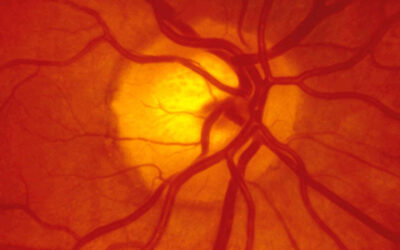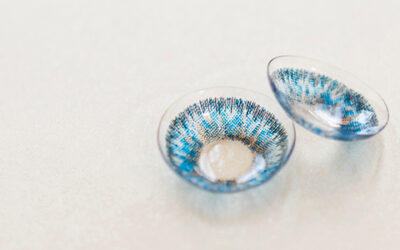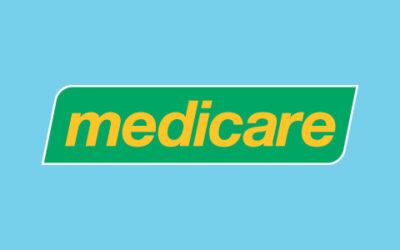Should I See An Optometrist Or Ophthalmologist For Contact Lenses?
Looking to get contact lenses and aren’t sure where to start? If you know you need to book in to see an eye care professional, whether it’s to discuss having contact lenses while you’re currently wearing prescription glasses or if it’s to have your vision re-assessed and get a new prescription, you may have noticed that there are two main types of eye-care specialists: optometrists and ophthalmologists.
As many clients call us unsure which eye care professional to book an appointment with when it comes to contact lenses, today we’ve taken a closer look at the difference between optometrists and ophthalmologists, including exploring their different roles, specialties and services that they provide.
When it comes to wearing contact lenses, your comfort, vision and proper fit are essential in choosing the right lens.
Let’s see how you can choose the best eye-care professional, whatever your contact lens needs.
An Optometrist Is Your Go-To For Contact Lenses
Optometrists are your first point of contact when getting new contact lenses as a primary healthcare provider for all regular and routine eye assessments and prescriptions. An ophthalmologist is a secondary or tertiary health provider, meaning they are a medical doctor who specialises in eye surgery and complex eye problems.
In our experience, when an ophthalmologist has performed vision-related surgical procedures and their patient needs contact lenses, they’ll typically refer them back to an optometrist to ensure the lenses have the best fit and so that they can provide ongoing care for that person throughout the years.
Your optometrist will then support you in correcting any vision errors such as myopia (nearsightedness), hyperopia (farsightedness), astigmatism, or presbyopia (farsightedness related to ageing) – and keeping your eye health and vision at an optimal state.
What else does an optometrist do?
As well as specialising in contact lens prescriptions, fittings and ongoing care to ensure your contacts are feeling comfortable and working well, optometrists also focus on:
- Comprehensive eye exams and vision tests, including annual eye exams
- Prescribing and fitting glasses, eyewear and other visual aids
- Monitoring medical eye conditions related to diseases like diabetes and age-related macular degeneration
- Diagnosing, managing and treating a range of medical eye conditions such as dry eyes, glaucoma, conjunctivitis, retinopathy and more
- Providing low-vision aids and vision therapy
- Prescribing medication and treatments for a range of eye conditions
- Providing post-surgical eye care and eye health education
Ophthalmologists Are Medical and Surgical Eye Specialists
An ophthalmologist, an eye surgeon, specialises in more complex eye conditions and problems often treated with intricate eye surgery.
Despite being eye specialists, they generally do not offer the same base services as optometrists, instead working alongside them and using an optometrist’s assessment to guide their further investigations and clinical decision-making, and then referring the patient back to an optometrist for ongoing standard eye care following the resolution of the specific condition that led to the referral.
What else does an ophthalmologist do?
With extensive training in in-depth surgical procedures in diseases of the eyes, this is their specialty, so almost all ophthalmologists will focus on this as their primary scope of care. Along with complete vision and eye care services, they specialise in:
- Medical eye care for conditions like iritis, chemical burns and glaucoma
- Surgical intervention for serious or complex diseases and concerns such as squints, cataracts, corneal transplants, trauma, retinal detachment and much more.
- Laser eye surgery
- Plastic surgery, including blepharoplasty to raise droopy eyelids, remove cysts or melanomas or repair trauma injuries
Many ophthalmologists are also involved in scientific research investigating different eye diseases and vision disorders.
For more information about the differences between optometrists and ophthalmologists, read our recent article here.
How Can An Optometrist Help Me With Contact Lenses?
Whether you want an alternative to wearing glasses, you want to alternate between the two, or you are making the switch to wearing contact lenses full time, it’s important to make sure that your lenses fit both your eyes and your vision properly, ensuring you can see clearly while feeling comfortable.
This is why our optometrists at The Optical Co offer customised contact lens consultations to give you the best outcome from your lenses while helping you feel fully informed about how to care for your lenses and your eye health.
Our optometrists specialise in fitting contact lenses for minor vision disturbances and those with eye disease, high refractive errors, dry eyes, misshapen corneas, outdoor or active lifestyles, and more.
Contact Lens Types
During your appointment with our eye care professionals, we’ll always take the time to explain our wide range of contact lens types to best support your needs and lifestyle. These may include:
- Daily disposable lenses, which are ideal for travelling as there are no cleaning solutions to pack, or for those who have hay fever or allergies and find relief from a fresh lens every day
- Monthly disposable lenses which can be worn every day for up to a month, offering better value as you only need 12 pairs each year
- Continuous wear lenses which can be worn during the day and into the night without needing to take them out for sleep
- Multifocal contact lenses, which can accommodate different prescriptions within one lens – help you switch focus from close vision to distant in an instant
- Toric contact lenses for astigmatism – to suitcases where the lens of the eye is slightly oval-shaped
- Coloured lenses can enhance the natural beauty of your eyes with depth and definition or allow you to try any colour on the spectrum, from bright blue to warm brown
Contact Lens Consultation: What To Expect
Eye Examination: Contact lenses are medical devices, so you need an eye examination to determine the best prescription for your lenses. Here, your optometrist carries out a comprehensive eye exam to assess your vision and find the right contact lens for your needs. Your contact lens prescription may differ if you already have a glasses prescription. You’ll typically need a separate contact lens assessment to ensure your lenses will be right for your eyes and vision.
Lifestyle Preferences: There is a wide range of lenses available with today’s advancing technology, and some contact lens types may be better suited for athletes with active lifestyles, whereas others may be better for frequent travellers who might need to occasionally sleep while still wearing their contacts. All of this will be considered during your exam
Measurements: Your optometrist will also gather several measurements, including the curvature of your cornea, which is the clear front surface of your eye where your contact lens will sit. Your pupil and iris size may also be measured.
Tear Film Evaluation: If you tend to have dry eyes, your optometrist may also perform a tear film evaluation to ensure you’re prescribed lenses that keep your eyes moisturised.
Hygiene: During your appointment, we’ll guide you on how to use and care for your contact lenses hygienically to help support the health and comfort of your eyes.
Our team understands how important the option to be able to wear contact lenses is to many, so we always take a great time and care in helping you get the best contact lenses for your needs.
To learn more about the benefits of wearing contact lenses or to make an appointment to find a lens style that best suits you, contact us, or use your current prescription to shop for your contact lenses online.




